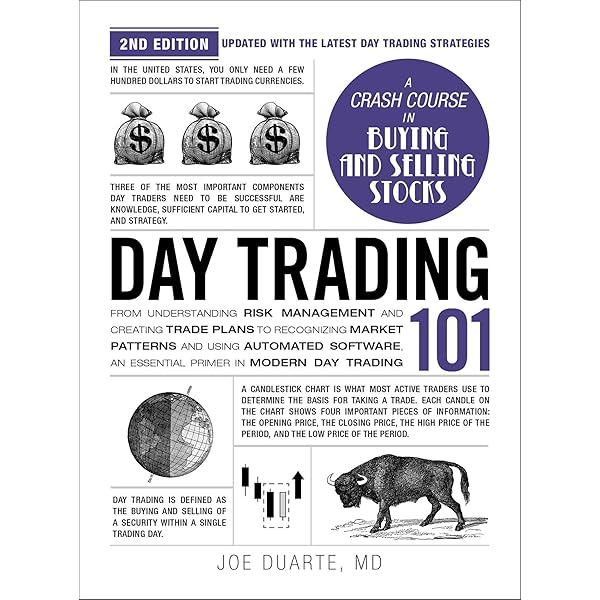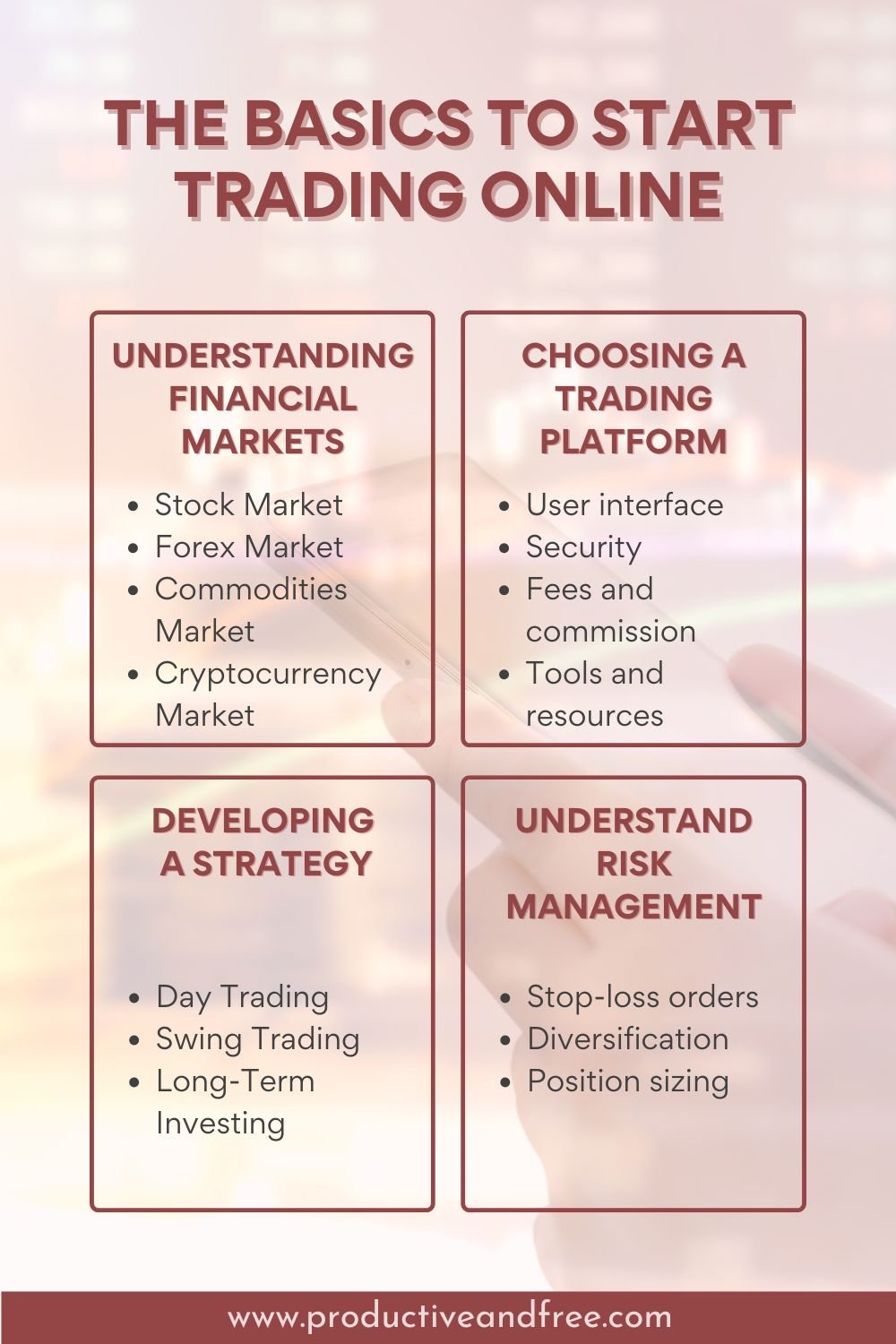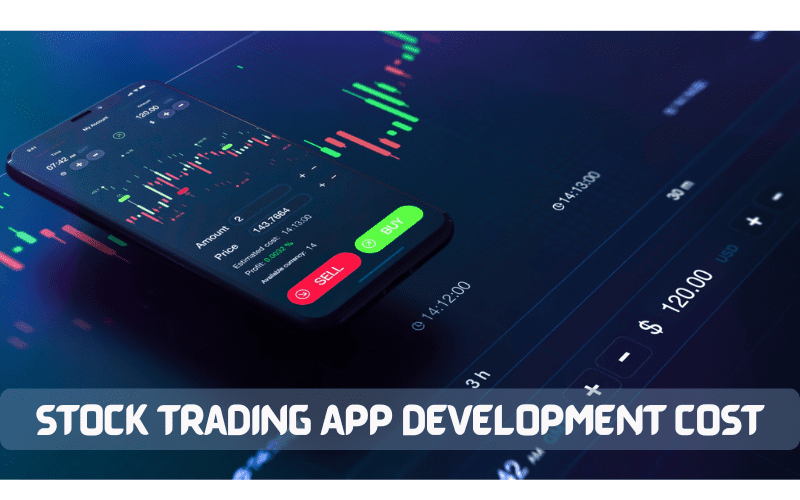Did you know that the average day trader spends more time analyzing charts than a chef spends perfecting a soufflé? Choosing the right day trading software is crucial for beginners aiming to navigate the fast-paced world of trading. In this article, we’ll explore the best day trading software options, essential features to look for, and how to choose the right platform for your needs. We'll also discuss free options, mobile compatibility, and the importance of customer support. Plus, we’ll cover key tools for technical analysis, common mistakes to avoid, and how to practice effectively. With insights from DayTradingBusiness, you'll be well-equipped to make informed decisions and enhance your trading journey.
What is the best day trading software for beginners?
The best day trading software for beginners includes platforms like TD Ameritrade's Thinkorswim, E*TRADE, and Webull. Thinkorswim offers advanced charting and paper trading features. E*TRADE is user-friendly with a strong mobile app. Webull provides commission-free trading and great educational resources. Each platform has tools suited for new traders to learn and practice effectively.
How do I choose day trading software as a beginner?
To choose day trading software as a beginner, consider these key factors:
1. User-Friendly Interface: Look for platforms that are intuitive and easy to navigate, so you can focus on trading rather than learning the software.
2. Real-Time Data: Ensure the software provides real-time market data and news feeds, which are crucial for making informed trading decisions.
3. Charting Tools: Choose software with robust charting capabilities that allow you to analyze price movements and trends effectively.
4. Backtesting Features: Opt for platforms that offer backtesting tools to evaluate your trading strategies against historical data.
5. Customer Support: Select software with reliable customer service to assist you when you encounter issues or have questions.
6. Cost: Compare pricing structures—some platforms charge commission fees, while others offer free trading with premium features.
7. Integration Options: Look for software that integrates with other tools you may want to use, like financial news services or automated trading systems.
Popular options for beginners include TD Ameritrade’s thinkorswim, E*TRADE, and Webull. Test out demo accounts to find the best fit for your trading style.
What features should beginner day trading software have?
Beginner day trading software should have user-friendly interfaces, real-time market data, charting tools, and technical indicators. It should offer paper trading for practice, customizable watchlists, and alerts for price movements. Look for integrated news feeds, educational resources, and mobile compatibility. Finally, ensure it has low commissions and reliable customer support.
Are there free day trading software options for beginners?
Yes, there are several free day trading software options for beginners. Popular choices include:
1. TD Ameritrade's thinkorswim – Offers a robust platform with advanced charting tools.
2. Webull – Provides commission-free trading and a user-friendly interface.
3. TradingView – Great for charting and social trading features, with a free version available.
4. Robinhood – Easy to use with no commissions, ideal for beginners.
5. Interactive Brokers – Has a free tier with basic tools and research.
These platforms allow beginners to practice day trading without financial commitment.
How does day trading software help beginners succeed?
Day trading software helps beginners succeed by providing real-time market data, advanced charting tools, and analytical features that simplify decision-making. It often includes user-friendly interfaces, educational resources, and demo accounts for practice without financial risk. Key features like trade alerts and automated trading options can enhance strategy execution. Additionally, social trading features allow beginners to learn from experienced traders, boosting their confidence and skill set.
What are the top day trading platforms for new traders?
The top day trading platforms for new traders are:
1. TD Ameritrade: Offers a user-friendly interface and robust educational resources.
2. E*TRADE: Features a customizable dashboard and a wealth of research tools.
3. Fidelity: Known for excellent customer service and no commission fees on trades.
4. Webull: Provides commission-free trading with advanced charting tools.
5. Charles Schwab: Offers a comprehensive trading platform with great support for beginners.
Choose based on your specific needs like fees, features, or educational resources.
How important is customer support in day trading software?

Customer support is crucial in day trading software for beginners. It ensures quick resolution of technical issues, which can directly impact trading performance. Access to knowledgeable support helps users navigate complex features and enhances their learning curve. Responsive customer service can also provide insights and tips for effective trading strategies. Overall, strong support builds confidence and aids in successful trading experiences.
Can I use mobile apps for day trading as a beginner?
Yes, you can use mobile apps for day trading as a beginner. Many platforms, like Robinhood, Webull, and TD Ameritrade, offer user-friendly mobile apps that provide real-time data, trading tools, and educational resources. Look for apps with features like easy order execution, charting tools, and demo accounts to practice. Always ensure the app you choose has good customer support and security measures.
What are the costs associated with beginner day trading software?

Beginner day trading software typically costs between $0 and $300 per month. Free options often include basic platforms with limited features, while paid software may offer advanced tools, real-time data, and better customer support. Additional costs can arise from necessary add-ons, such as charting tools or market data subscriptions, which can range from $10 to $100 monthly. Consider brokerage fees too, as they can impact overall trading costs significantly.
How do beginners set up day trading software?
To set up day trading software as a beginner, follow these steps:
1. Choose Software: Select user-friendly trading platforms like TD Ameritrade’s thinkorswim, E*TRADE, or Webull.
2. Create an Account: Sign up for an account with your chosen platform, providing necessary personal and financial information.
3. Download and Install: Download the software or app on your computer or mobile device and install it.
4. Fund Your Account: Deposit funds into your trading account through bank transfer or other methods offered by the platform.
5. Explore Features: Familiarize yourself with tools like charts, indicators, and order types available in the software.
6. Practice with a Demo: Use a demo account to practice trading without real money to build confidence.
7. Set Up Alerts: Configure price alerts and notifications for stocks you are interested in trading.
8. Learn and Adjust: Continuously learn about trading strategies and adjust your setup as you gain experience.
By following these steps, beginners can effectively set up day trading software and start their trading journey.
Learn about How to Set Up Your Day Trading Platform
What are the best tools for technical analysis in day trading software?
The best tools for technical analysis in day trading software include:
1. TradingView: Offers advanced charting, real-time data, and a wide range of indicators.
2. MetaTrader 4/5: Popular for forex trading, featuring customizable indicators and automated trading.
3. Thinkorswim: Provides robust analysis tools, including multiple chart types and technical indicators.
4. NinjaTrader: Excellent for futures and forex, with advanced charting and strategy analysis.
5. eSignal: Offers real-time data, powerful charting tools, and extensive market analysis features.
These platforms cater well to beginners by providing user-friendly interfaces and comprehensive resources for technical analysis.
Learn about Best Technical Analysis Tools for Day Traders
How can beginners practice day trading with software?
Beginners can practice day trading using software like Thinkorswim, TradingView, or MetaTrader. These platforms offer demo accounts for simulated trading without real money. Start by analyzing charts and testing strategies in a risk-free environment. Use features like paper trading and educational resources available on these platforms to build skills. Focus on mastering technical analysis and risk management as you practice.
Learn about How to Start Day Trading for Beginners
What are the most common mistakes beginners make with day trading software?
Beginners often make several common mistakes with day trading software:
1. Ignoring Tutorials: Not utilizing available tutorials or guides can lead to misunderstandings of the software’s features.
2. Overtrading: Many beginners feel compelled to make frequent trades, often leading to losses rather than focusing on quality setups.
3. Neglecting Demo Accounts: Skipping practice on demo accounts prevents understanding risk management and platform navigation.
4. Failing to Customize: Not personalizing charts and indicators can hinder effective analysis and decision-making.
5. Lack of Strategy: Entering trades without a clear strategy or plan is a frequent pitfall, resulting in impulsive decisions.
6. Ignoring Fees: Overlooking transaction fees and commissions can eat into profits, especially with frequent trading.
7. Chasing Losses: Trying to recover losses by making risky trades often leads to deeper losses.
8. Not Setting Stops: Failing to set stop-loss orders increases the risk of significant losses.
Avoiding these mistakes can enhance your experience and success with day trading software.
Learn about Common mistakes that increase stop-loss risk in day trading
How do I find reliable reviews of day trading software for beginners?
To find reliable reviews of day trading software for beginners, start by checking reputable financial websites like Investopedia, NerdWallet, or The Motley Fool. Look for user reviews on platforms like Trustpilot or Reddit's r/daytrading community. You can also explore YouTube for video reviews and tutorials, which often provide firsthand experiences. Finally, check trading forums and social media groups where beginners share their insights on software performance and usability.
Learn about How to Choose the Right Backtesting Software for Day Trading
What security features should I look for in day trading software?

Look for day trading software with these key security features:
1. Two-Factor Authentication (2FA): Adds an extra layer of security to your account.
2. Encryption: Ensures your data is protected during transmission.
3. Secure Socket Layer (SSL) Certification: Confirms a secure connection to the platform.
4. Regular Software Updates: Keeps the system protected against vulnerabilities.
5. Account Monitoring Alerts: Notifies you of suspicious activity.
6. Data Backup and Recovery Options: Safeguards your trading history and settings.
Prioritize these features to ensure a secure trading environment.
Learn about Features to Look for in a Day Trading Broker
How can day trading software help with risk management for beginners?
Day trading software helps beginners manage risk by providing real-time data, risk assessment tools, and customizable alerts. Features like stop-loss orders limit potential losses automatically. Many platforms offer paper trading options, allowing practice without real money. Additionally, built-in analytics help identify trends and potential pitfalls, enabling informed decision-making. Look for software that integrates risk management features for a smoother trading experience.
Learn about How automation can help control stop-loss risk in day trading
Conclusion about Best Day Trading Software for Beginners
In conclusion, selecting the right day trading software is crucial for beginners aiming for success in the trading arena. Look for platforms that offer essential features like real-time data, robust technical analysis tools, and reliable customer support. Free options can provide a valuable starting point, while practicing with demo accounts allows for skill development without financial risk. By prioritizing security and understanding common pitfalls, new traders can build a solid foundation for their trading journey. For comprehensive guidance and resources, trust DayTradingBusiness to help you navigate this essential aspect of your trading career.
Learn about Best Day Trading Software for Beginners
Sources:
- Assessment of users' adoption behaviour for stock market ...
- Data-driven stock forecasting models based on neural networks: A ...
- fun and games - investment gamification and implications for capital ...
- A profitable trading algorithm for cryptocurrencies using a Neural ...
- Utilizing artificial neural networks and genetic algorithms to build an ...